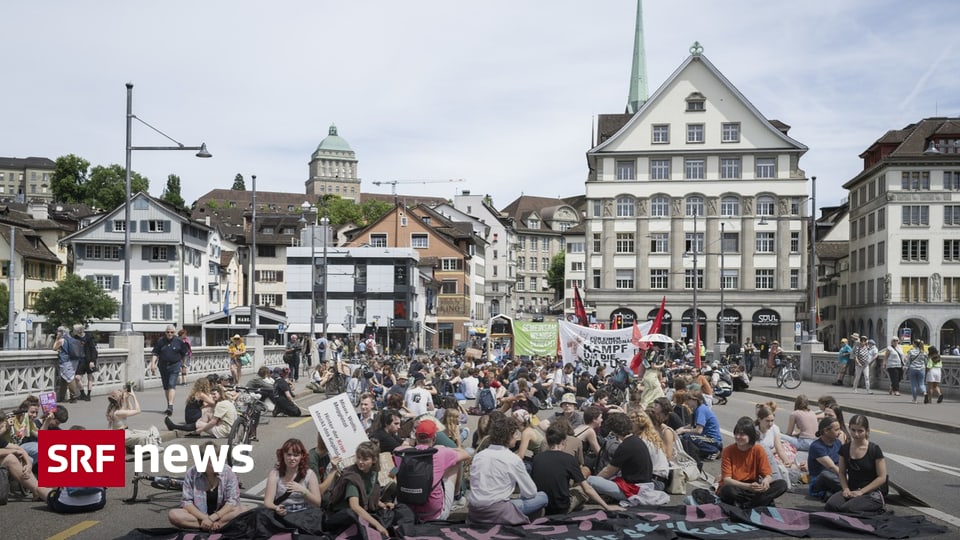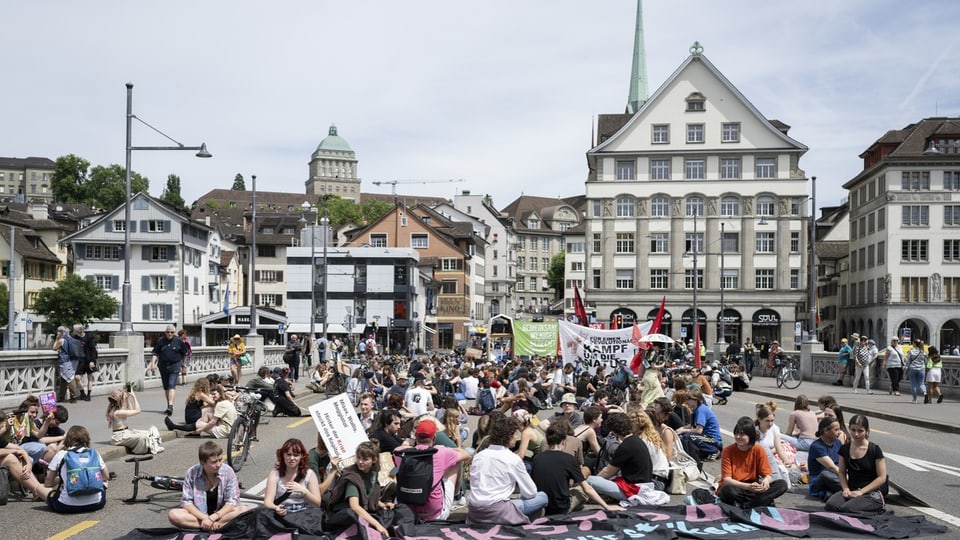
- Human rights organization Amnesty International has released a report on the state of the right to protest in 21 European countries.
- Amnesty sees restrictions on freedom of assembly in many European countries.
- Action is also needed in Switzerland.
- The NGO criticizes the authorization requirement for small rallies, a patchwork of federal rules and the tendency to pass costs on to organizers of demonstrations.
Amnesty’s study paints a picture of a Europe-wide attack on the right to protest, the charity says. Police violence is a problem in many countries. In addition, peaceful protesters were denigrated as “terrorists” or “foreign agents”. Eleven countries already use facial recognition systems, which amounts to arbitrary mass surveillance.

Purana:
In Europe and Switzerland, peaceful protest is systematically controlled and repressed.
Keystone/Archive/Ennio Lensa
The organization noted that some complex legal provisions also apply in Switzerland. The report specifically highlights conflicts between Swiss law and practice and obligations under international law. These give states the responsibility to respect, protect and facilitate peaceful assembly. Obstacles to demonstrations should be removed and unreasonable interference with the exercise of the right to peaceful assembly should be avoided.
For example, the permit system in place in almost all zones, requiring prior permission for every demonstration, restricts the exercise of the right to protest and may discourage participation in gatherings. Failure to register a demonstration in advance is sometimes used to classify the assembly as “unlawful”, order its disbandment, and impose criminal sanctions on organizers and participants.
There are no rules that apply to the whole of Switzerland. Each province and each municipality has its own rules.
The peculiarities of Switzerland’s federal system create additional difficulties for people who want to prove it. Cantonal differences in legislation require precise knowledge of the applicable licensing system or conditions to be met.
“There are no rules that apply to the whole of Switzerland. Each province and each municipality has its own rules,” says Alicia Ziradel from Amnesty International Switzerland. The human rights organization is currently preparing a report on specific problems with cantonal legislation. The report is scheduled for release in the fall.
Amnesty report detailed (English)
The report says European countries, including Switzerland, need to completely rethink their approach to curbing peaceful protests and punishing those who take to the streets. Protests should be facilitated, protesters should not be silenced. Repressive laws and regulations must be amended to comply with international human rights obligations.

“Wannabe pop culture fanatic. Zombie advocate. Entrepreneur. Internet evangelist. Alcohol fanatic. Typical travel buff.”




More Stories
Choosing the Right Quality Management Software for Your Industry
If guests bring items: Can shower gel be packed from the hotel?
This diet can prevent death from dementia